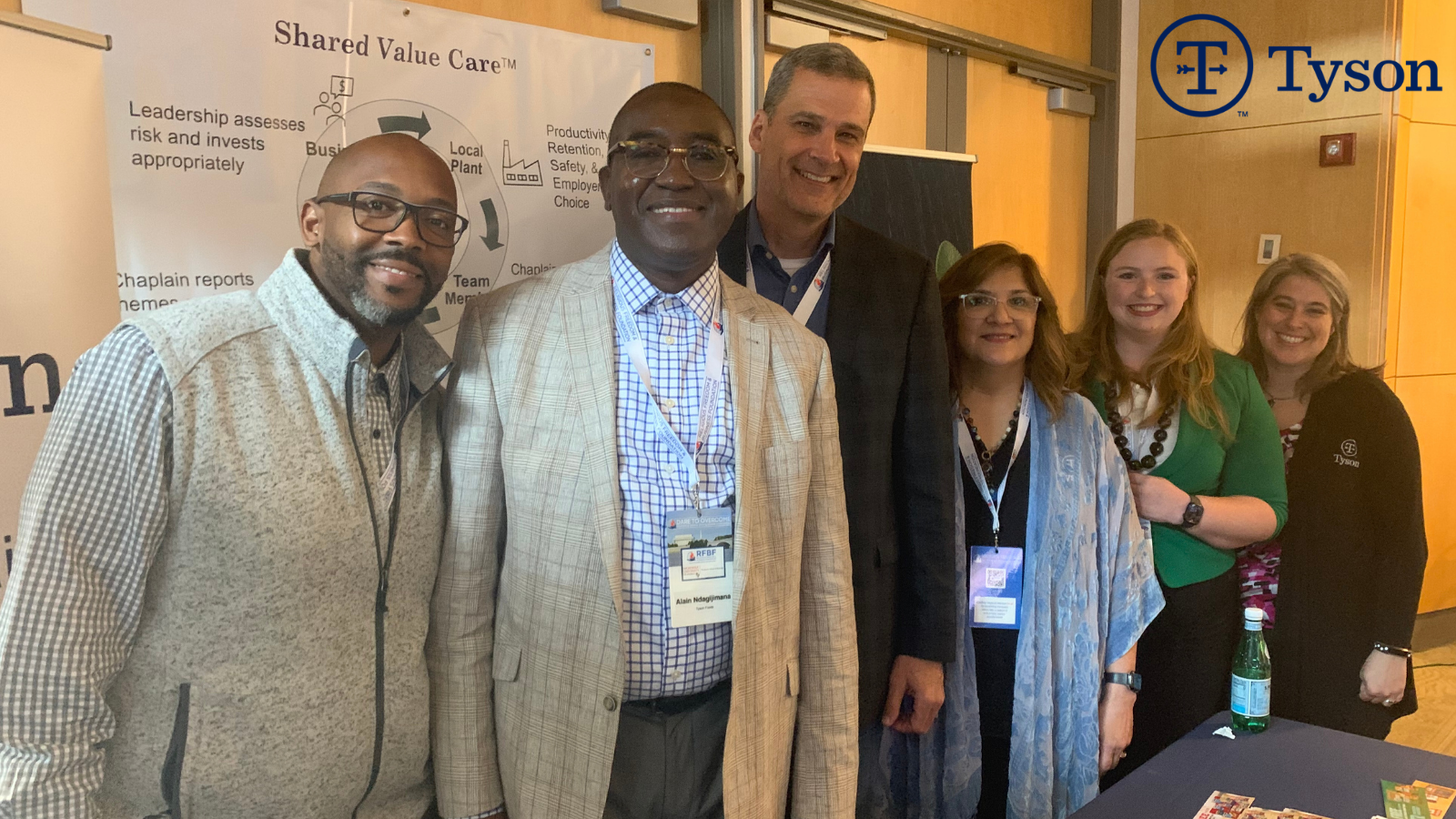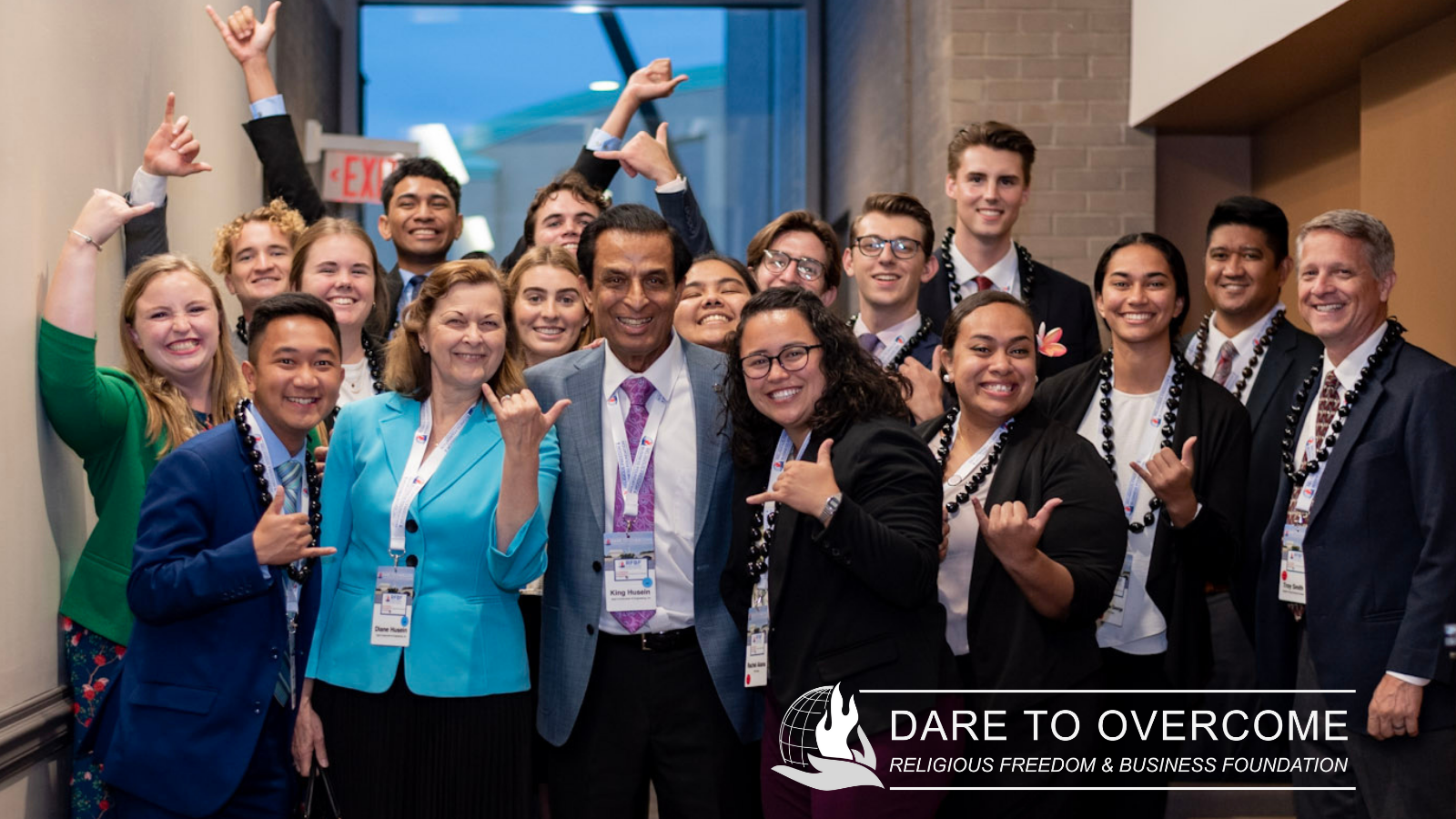 Take a second and imagine a large event space full of businesspeople ready to discuss a concept that will increase productivity, energize their corporate culture, and lead to better business practices; all these benefits will lead to the ultimate goal of a business, to make money. However, in this hypothetical situation eliminate two elements that may define the atmosphere: ego-centric attitudes and a focus completely on profit. While it may seem blunt, those elements are ever present. It must be asked, what is left when they are taken away? Methodology? Market trends? Maybe. What if they are replaced by discussion of how to allow all those within a corporation to bring their whole selves to work, faith included? The result of that is exactly how it felt to attend Dare to Overcome with the Religious Freedom & Business Foundation.
Take a second and imagine a large event space full of businesspeople ready to discuss a concept that will increase productivity, energize their corporate culture, and lead to better business practices; all these benefits will lead to the ultimate goal of a business, to make money. However, in this hypothetical situation eliminate two elements that may define the atmosphere: ego-centric attitudes and a focus completely on profit. While it may seem blunt, those elements are ever present. It must be asked, what is left when they are taken away? Methodology? Market trends? Maybe. What if they are replaced by discussion of how to allow all those within a corporation to bring their whole selves to work, faith included? The result of that is exactly how it felt to attend Dare to Overcome with the Religious Freedom & Business Foundation.
With over 250 attendees present and a multitude of religious beliefs represented, Dare to Overcome presents a unique opportunity for understanding and building religious freedom principles in the workplace. Religion is a topic often avoided, especially when it comes to corporations that strive to be diverse and inclusive. However, avoiding religious discussion creates an environment antithetical to one with diversity and inclusion. A person’s faith is part of who they are; it defines, in large part, how they see the world. It is a concept that, due to the sensitive nature of religion, is left untouched. Those at the Religious Freedom and&Business Foundation found the courage to bring that topic to the table and gathered those who are ready to join them, the ones who Dare to Overcome.
 The event, featuring keynote speakers, roundtables, panels, and multiple exhibits highlighted three powerful elements for the promotion of religious freedom in the workplace, employee resource groups (ERGs), chaplaincy, and acceptance. ERGs allow associates to connect with their coworkers who share their experiences, whether it be a belief system, an experience, or a disability. ERGs are essentially support groups within companies to ensure people understand they are not alone. Chaplains serve a similar role, but they have a position dedicated to the spiritual and mental wellbeing of their coworkers. Providing that resource for employees communicates a realization of their being individual people with full, complete, and nuanced lives. During the conference, Chaplain Alain Ndagijimana from Tyson Foods emphasized the role of chaplaincy when he said, “What is not transformed is transmitted,” meaning that the struggles employees face in their personal lives, whether they be familial, financial, spiritual, or otherwise, still exist when they come to work. What a chaplain can do is help their coworkers take those challenges and transform them, rather than transmitting it into lower productivity or poor work product.
The event, featuring keynote speakers, roundtables, panels, and multiple exhibits highlighted three powerful elements for the promotion of religious freedom in the workplace, employee resource groups (ERGs), chaplaincy, and acceptance. ERGs allow associates to connect with their coworkers who share their experiences, whether it be a belief system, an experience, or a disability. ERGs are essentially support groups within companies to ensure people understand they are not alone. Chaplains serve a similar role, but they have a position dedicated to the spiritual and mental wellbeing of their coworkers. Providing that resource for employees communicates a realization of their being individual people with full, complete, and nuanced lives. During the conference, Chaplain Alain Ndagijimana from Tyson Foods emphasized the role of chaplaincy when he said, “What is not transformed is transmitted,” meaning that the struggles employees face in their personal lives, whether they be familial, financial, spiritual, or otherwise, still exist when they come to work. What a chaplain can do is help their coworkers take those challenges and transform them, rather than transmitting it into lower productivity or poor work product.
Acceptance through the lens of religious freedom in the workplace is by far the most powerful tool, enabled through ERGs and chaplains. Acceptance allows employees to openly discuss, display, and embrace their religious beliefs at work. It does not mean proselytizing, but it does mean creating a safe space for all that is held dear to the hearts of those within a company. It means building bridges of understanding that would otherwise not even be approached. It means being accommodating to every belief system that has some hand in the success of your company. Acceptance widens the perspectives of all those involved, bearing the fruit of an uplifting and ethical workplace.
Remember the hypothetical event we discussed earlier? That event is Dare to Overcome. Over the course of three days the conference was filled with opportunities to discuss religious freedom, explore and share various faiths, and celebrate the progression of religious freedom in various businesses. It created an atmosphere where it did not seem to encourage intense, cutthroat competition, but one where everyone chose to uplift one another. Attending Dare to Overcome gave a sense of hope that as people are able to follow their moral compasses, especially as they relate to faith, more and more good people will go into business; those people, hopefully, avoiding the malicious, the unethical, and the evil and embracing their role and purpose in creating a better world.

